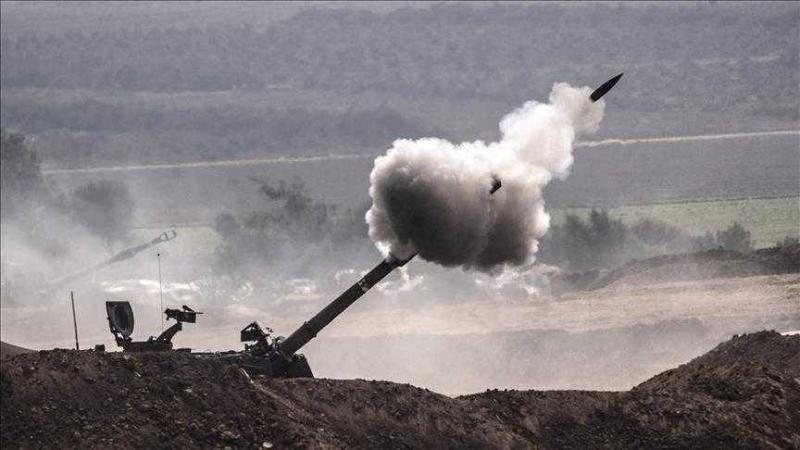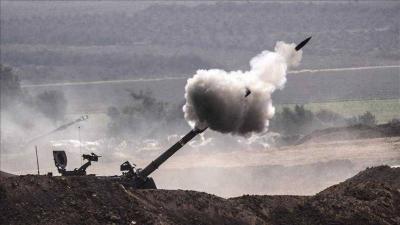An aggressive act was carried out by Israel yesterday with the assassination of the Deputy Chairman of Hamas, Saleh Al-Arouri, in the southern suburb of Beirut. This marks a significant escalation in the ongoing war in Gaza and along the southern front. All eyes will currently be on the response to this operation, whether in terms of the faction that will retaliate or the location of that response, as reported by the electronic "Anbaa" news outlet.
It is known that Al-Arouri is one of the prominent leaders of Hamas, a key architect of the "Unity of Fronts" policy, and the coordinator of relations between the movement, Iran, and Hezbollah. He holds regular meetings with the Secretary-General of Hezbollah, Hassan Nasrallah, and secures funding for the movement, indicating the size of Al-Arouri's role and influence, as well as the magnitude of the Israeli operation that exceeded the boundaries of Resolution 1701 and the restrictions against bombing the southern suburb.
The assassination of Al-Arouri falls within the assassination policy that Israel was expected to initiate after the start of the Gaza war. Israel had repeatedly threatened Hamas leaders, foremost among them Al-Arouri and the movement’s head in Gaza, Yahya Sinwar, in addition to the leader of the Izz ad-Din al-Qassam Brigades, Mohammed Deif. Therefore, this operation may not be the last.
In terms of a potential response, several possibilities have been raised, including Hamas executing a retaliatory operation from Gaza, a border operation from the southern front, or even a response operation by Hezbollah. Nasrallah had previously warned Israeli leaders against targeting Palestinian faction leaders in Lebanon, stating that such operations would not go unanswered, and Nasrallah's speech today is highly anticipated.
Notably, the delicate situation emerges with the possibility of the return of the American envoy to Lebanon, Amos Hochstein. In this context, writer and journalist Dawood Ramal notes that this "escalation is expected, as the assassination of leaders in Palestinian factions, particularly in the Islamic Jihad and Hamas, is a matter anticipated, and Israel will not hesitate to carry out these operations, as Israeli Prime Minister Benjamin Netanyahu is determined to open a war with Lebanon at any cost." He also declared that he would assassinate anyone involved in the "October 7" operation, whether inside or outside Palestine, considering deputy chairman of Hamas's political bureau Saleh Al-Arouri fundamental to the "Flood of Al-Aqsa" operation. Consequently, Ramal believes that "the enemy will consider what has occurred a qualitative achievement for Israel."
Regarding Hochstein's return, Ramal emphasizes that "Hochstein, during his last visit to Lebanon, informed the Lebanese leaders he met that he would return at the beginning of the new year, and he would not be delayed, with the primary item on his agenda being the completion of the land border demarcation process." He pointed out that "they speak of demarcation while Lebanon considers it establishing the land borders, as these borders have been delineated and their maps have been deposited with the United Nations since 1920, with reaffirmation in the 1949 armistice agreement."
If Hochstein returns, what might he bring? Ramal speculates that he "may carry the initiative related to resolving the disputes over the contested points along the land border, and consequently the tripartite military committee will reconvene, usually meeting at the United Nations headquarters in Naqoura with a representative from the United States present to continue discussions on the disputed points, especially since this issue was raised on the Tripartite Naqoura table in 2017, with agreement on 7 contentious points, of which 6 remain unresolved, the most notable being point 'B1,' i.e., Ras al-Naqoura, which has not been agreed upon." However, Ramal points out that "this agreement has not been finalized in a formal record pending the agreement on the remaining points."
Ramal also discusses the issue concerning the Shebaa Farms, clarifying that "Resolution 1701 placed it under the auspices of the United Nations until a final solution for the region is achieved or even until Syria explicitly declares that these farms are Lebanese."
However, the question remains: will Hochstein's visit proceed following the attack on the southern suburb? Ultimately, the level of tension in Lebanon and the region is escalating, and following security threats in the Red Sea, Lebanon is now becoming a battlefield, waiting to see what the coming days will bring.




